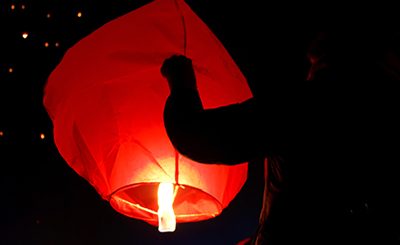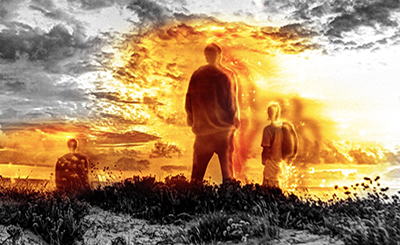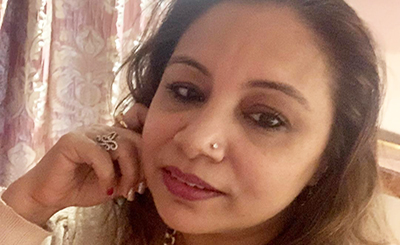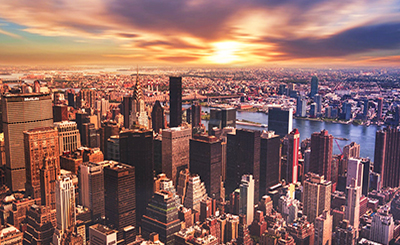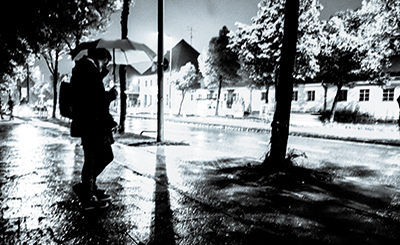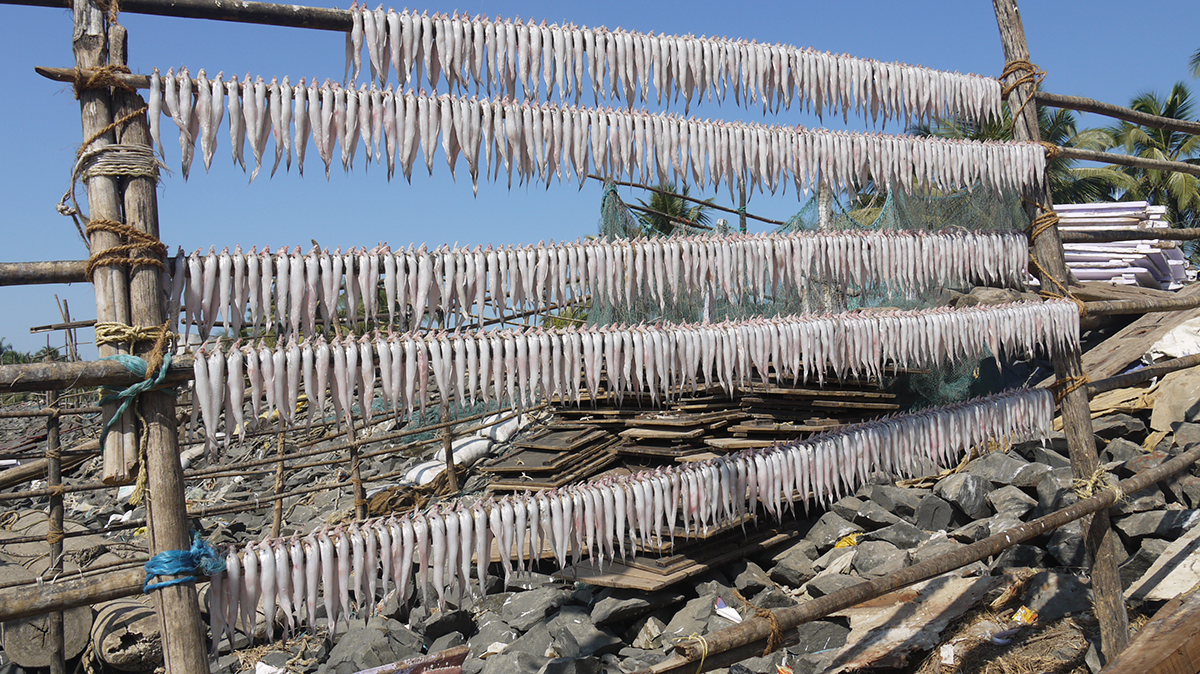
No matter how long I spent there, it was always interesting, always changing, always to be loved. One day, Bombay would swallow me whole even if I momentarily floated above it all, and that this would be welcome, a return to home in the cosmic ocean among stars alone.
I often think of my writing as unconscious, a kind of ecriture réflexe, with, of course, a predisposition to blissful ignorance. It is better suited to praxis rather than thought at the end of the day, known through muscle movements as I work towards a simple life in the suburbs, similar in a great many ways to how most people spend their lives without reflecting on what they are doing nine to five, Monday to Friday. In a simple phrase, I am the fish who lives in water but does not know this to be the case. Occasionally, I write and consider it beyond the task at hand, due usually to how it reaches land, how editors and readers respond and remind me that writing travels in the world out there. They remind me, most of all, of what home is. I experience something similar as a reader too, find words on the page that take me somewhere else, that remind me that texts, books, ideas matter, which I am then compelled to reflect on with those very same authors, critics, poets, every now and then. I find it less often at writing events, given how rare they are these days when one is parenting, place bound and locked down, and, given the nature of writing to begin with. To be a fish out of water is especially welcome then, and on rare occasions I feel as though I am flying, just like any one of the 64 species of exocoetidae, momentarily skipping and gliding in air, a breath above the predatory swordfish, tuna, mackerel, marlin, enjoying my time in the sun, down Barbados way. Oftentimes, those feelings are found only in memory, when one is back in the home waters, swimming, happily enough in normal tides and times.
I remember flying once. It was the last time I was in Bombay. I was winding my way through back alleys along the coast, going past hungry cats and women selling dead eye fish with the ocean just over their shoulders, looking for a tailor’s shop that my wife wanted to visit. We planned to buy some silks for my mother and sisters, the metallic shimmer and resplendent frisson of cloth a gift to wear at formal events back here. As we walked with the strong smell of the sea making the breeze concrete, looking for street numbers, small piles of sand here and there next to smoking plastic fires, I thought of the reality that Bombay was a fishing city. A city so grand and so big yet so connected to the ebb and flow of the ocean itself, built up from a village in only two hundred years, one with ghost nets and life rafts, with salt air and livid water, and a certain elemental poetry, and self-aware enough to realise we are all reclaimed from whence we came. It is where the city immerses its favourite god in water after praying for ten days in a celebration of rituals every year. After this particular trip there, I knew, quite thankfully, that Bombay will always be a new wave to me. No matter how long I spent there, it was always interesting, always changing, always to be loved. One day, Bombay would swallow me whole even if I momentarily floated above it all, and that this would be welcome, a return to home in the cosmic ocean among stars alone.
There are a great many bookstores in Bombay. Some of them resemble seagrass pastures, thick with greening mildew, books stained but still for sale, thickets of pages that one can get lost in, that schools get lost in. They are down narrow streets, on wide boulevards, in cosy neighbourhoods both luxurious and poor, they are institutions that the city just cannot live without, and small businesses that make sense to children and adults, staffed with characters from novels that herald this city in all its forms, from necropolis to modernist to maximalist. Bookstores, just like fish sellers, just like tailors, are as Bombay as anything else.
The day after we found that tailor and bought those silks, I was hosted at an event at a bookstore in Fort, a place called Kitab Khana. It is light and airy, high ceilinged, caffeinated, resolute, beautiful with movie posters where walls and dark bookshelves permit. It is in a historic district that references the colonial while being on Mahatma Gandhi Road. The event was called the Cappuccino Adda, and is a reading and conversation series that convenes on an irregular basis, with poets from all over the city coming to share their work and spend time together. My hosts were Sampurna Chattarji and Ranjit Hoskote, and, over the course of six winding hours with chai in between, and twenty eloquent others, we spoke about the water and the fish, spoke at great length about what makes poetry historic. This was in 2018. Afterwards, I left with a stack of books in hand, and the memory of salty flight above water.
*
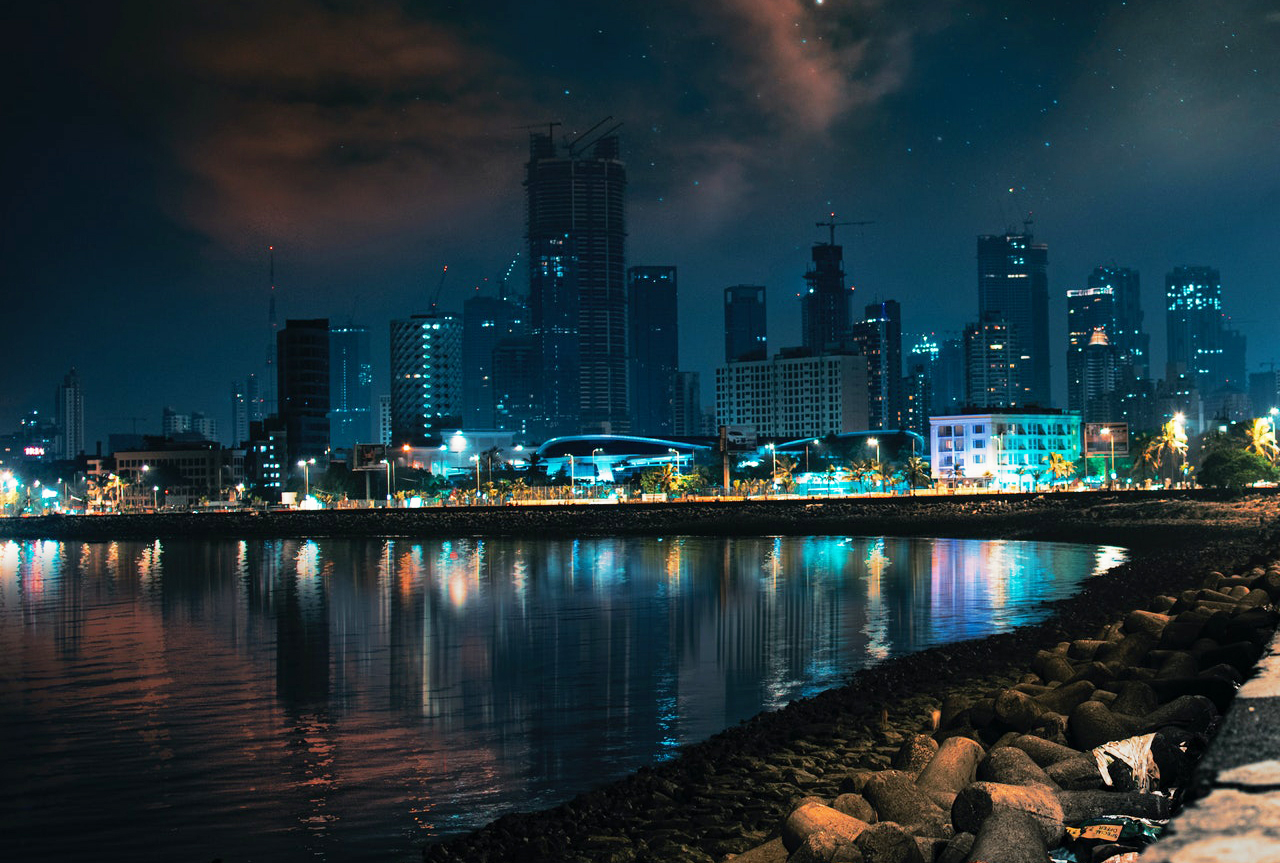
In my writing life, which began before I knew it was a 'writing life’, I have had some instructive lessons. I was fortunate when Susan Sontag, Richard Ford, Jamaica Kincaid, Art Spiegelman, and Donald Hall were fellows during the years I was at college in Philadelphia. I missed John Ashbery and Joan Didion by a year either side, but caught them for shorter events. Werner Herzog and I sent some emails back and forth after he came to give a talk and stayed for dinner with our class. To be educated always felt like a privilege, especially there in the metropole. But the more profound lessons in writing came from those outside the ivory towers.
Before I ended up in Philadelphia, Gerald Murnane and I wrote letters back and forth for some years (2003-2005 or so, from fallible memory). I had many questions and some reflections on where I was at in my life — making my way away from home as a young student in Canberra and intent on unlearning some things that I thought writers were. Our letters included his reflections on his wife’s cancer treatments and they were mundane and touching in equal measure. But more than that, I also particularly remember learning about a Hungarian writer, György Dalos, whose example reminded me of the industry beyond the academy. Dalos was making his life out there in public, making his work as a political subject in exile in Berlin, was a working writer in an industry. That was something to look up to.
Gerald and I lost touch after I moved to the Kimberley, but we finally met once in person. This was at the Victorian Premier’s Literary Award in 2016 when I was working in the industry and had been invited by a friend who was up for the Poetry Award. That was the year Gerald won in non-fiction for his horse racing memoir Something for the Pain. I saw him across the lawns of the garden, and went over after tucking in my ill- fitting shirt, plucking up some Dutch courage with a quick beer and some kind words from my future wife. He remembered who I was and my share-house address from the decade before and then abruptly asking why had I stopped writing to him. I said I had moved and lost his address. Being two people at a literary event in Melbourne, we spoke awkwardly for a few minutes longer before K came over to save us from ourselves and each other. Gerald’s eyes lit up — he recognised her last name, and immediately asked if her parents were in horse-racing. She said they were and he listed the last ten races the small stable had been involved in out there in country Victoria. I was quickly forgotten, quite thankfully, and we could resume speaking as two people who had lives not connected to literature and writing. It reminded me, just like Dalos’ example, of the fact that not everything ends up in a book, contra Mallarmé.
In the years after that instructive lesson, I sought out more writers who lived beyond university walls. Often they were novelists, often they were Australian, and often they had other jobs or interests, other backgrounds that were not MFAs, peer review or international conferences. There was Kim Scott, famed for his two Miles Franklins, who worked in community healing with the Wirlomin Noongar Language and Stories Project; and there was Peter Carey, known for his Booker, who had moonlighted in advertising with Bani McSpedden from 1980 to 1990. Since then though, so many writers I have known, are those who work in universities, and this is unsurprising given my own interests are beyond commercial literature and that there has been a decline in rates of pay to authors even as the industry has grown in the last few years alone when it comes to revenue. That is the Amazon Effect where the pyramid gets even slipperier and slopes ever steeper just as the base becomes ever wider. The only way to live and write then, it seems, is to go to uni or move to Goroke, just as Murnane did. The other path is to find cities that capitalism has already ruined, that the climate apocalypse has already struck, that have been reclaimed by disastrous settlement anyway. They are liveable in a definition that The Economist has not tabulated and rationalised for us.
Shortly after I met Murnane, K and I left Melbourne. It was becoming claustrophobic and expensive for us. We went to my ancestral home of Kerala in South India, living in Kochi, where, for $80 a week, we rented a nice three bedroom house with a yard and two bathrooms close to the waterfront and cultural district with space to grow. We stayed for close to a year then went to New York, where our one room studio was $750 a week or the entire fellowship that has lured us there. The ‘kitchen’ was so narrow that you could only stand sideways. I will never forget that we could not open our oven door all the way because it hit the fridge. There were no doors, only curtains to obscure the view of you on the toilet, from those in the lounge-room. We ate many slices of 99c pizza along the way. No wonder tenure looks good there, or in Sydney or Melbourne, while the demerits of being institutionalised are hidden.
On the surface when the swell is small, Bombay seems like an expensive city. And it is — rent is high, just like other global cities, but there are options for everyone. One can live a good life for far less than ‘the West in general. For 99c, you can have a sit down meal in a restaurant that is better than a slice of margherita, and that alone is enough of a lure for a small fish in a big pond any day.
*
I have lived in cities other than Philadelphia and Melbourne and New York, with extended stays in Paris, Berlin and New Delhi, and, of course, my home in Perth though this is more suburban than metropolitan; a one horse, iron ore town occupying stolen land, and there has been a lot of time over the years in Singapore. Having lived in those places, I cannot help but think that Paul Kelly had it wrong when he sang ‘every fucking city looks the same’. It’s a good populist hook for white Australians backpacking for the first time through Europe, but it’s a myth. It’s especially a myth when we compare North American to European to Asian cities, even as they are connected on pathways and routes and songlines, and it is also a myth when we compare Whadjuk to Kulin to Eora Countries here.
And then there are Megacities too, places I have been from Bangkok to Jakarta to Mexico City. When I returned to Australia, it all seemed quiet and slow, even Sydney ambled along and woke up shy on a Sunday morning, only to get going when the traffic demanded that it did so. In reference to the rest of Australia, as Paul Keating had it — ‘outside Sydney, you’re camping’. But in Sydney, after returning from around the world, I felt that I was next to these campers, merely staying in the same tourist village, this time in a chalet. It’s barely urban judging by the birdlife and the waves, no Tokyo or Rio de Janeiro or Shanghai either, and one simply wonders where all the people are, where all the workers and motorbikes have gone, and all the signs that this is a city that goes all night long rather than a place where shark attacks and rugby league make up the front-page news.
When we write of cities, we not only write about them, but from them. This might be the formal, or stylistic, literary quality of a place not only its content. We take on the rhythms of the city itself, become characters and, in turn, characterise it back, internalise the song of the place before expressing it outwards, find its beat is given lyrics, comes into the music of location, geography, mapping. What is the cadence of Bombay then?
It depends on whom one asks, on the noises one is accustomed to, the language and tracks of youth. One could be tempted to think of it as frenetic and jagged compared to the dulcet tones of my simple coastal backwater, our isolated little suburban city of lights, a home in thrall to any other big smoke, let alone a Megacity that truly never sleeps. Bombay goes all day and all night while also allowing for a languid tropical pace, a dreamy underwater quality to my mind’s eye, even as it is real and boring presumably for people who live there, for whom it is home, for those who miss it when they leave and cannot return to.
*
For now, I am stuck where I am, stuck in god’s own country, waiting it out in paradise, and I miss the world. I especially miss the strangers who do not know me, will never know me. The ones who don’t speak my language, those whose names are forever unknown. The mass I never meet and can never gaze at, not once. I miss them in my bones, in my marrow, because we cannot leave our suburban home. I miss Bombay so much.
Flights have been stopped, even for the triple vaccinated, both incoming and outgoing. Friends I know are stuck someplace else with no way of knowing when and if they can return, not being government officials or diplomats or children with parents who are terminally ill. We have been hermetically sealed for 658 days now.
My sister has never heard her niece speak or seen her catch a wave, eat a fish, eat anything, never built a sandcastle or splashed in the tide. Where she is, in Singapore, seems more than a world away, a lifetime too; Bombay even further, a shore that we can never reach not in his lifetime of ours. But, it is us who have fallen off the edge of the world. Everyone else is free to roam and travel.
How long can a writer maintain a writing life when they are sitting still? Perhaps for the very long, at least for the strong-willed. I have always moved, not a cosmopolitan though I admire the tradition, and not peripatetic or homeless, but moving in small ways, often across countries. Here, I can, at least right now, visit a different country, go from Whadjuk Boodjar to Wardandi Boodjar, with its own rhythms and flowers, its plants and people, its grains of sand that feel different under foot.
Now though, to be grounded once again, it reminds me of what I am missing most of all. I am missing what comes from books. I can read and find sovereign flight in my mind, taste the salt air of imagination, even touch the mountains and crevices, the swells and currents that go down other isthmus and peninsulas. But it is not the same.
If my writing is an ecriture réflexe, a muscle movement, a labour, trade, craft, simple way in the world, then it also needs to swim a little, to refresh itself from its head to its toes. It is embodied, a reflex that comes from walking, or digging, or surfing, not only sitting still.
More from The Byword
Comments
*Comments will be moderated




